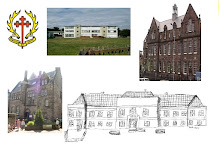A Curriculum for Excellence is aiming to help all young people to develop into:-
• Successful learners
• Confident individuals
• Responsible citizens
• Effective contributors

Understanding success criteria and the relevance of set tasks enables learners to become more responsible for their own learning and set future targets.
Successful learners should be able to think creatively and independently, learn independently and as part of a group. They should be able to make reasoned evaluations. Self and peer assessment strategies and target setting are central to this development.
Confident individuals should be able to relate to others and manage themselves. Regular use of assessment is for learning strategies enables pupils to become more confident in managing their own learning, and gives them opportunities to relate in a mature and appropriate manner to their peers.
Responsible citizens should be able to show respect for others and make informed choices and decisions. Peer assessments provide opportunities to learn how to give effective feedback to others in a sensitive and understanding manner.
Effective contributors should be self reliant, be able to work in partnership and in teams, and apply critical thinking in new contexts. Understanding learning outcomes and success criteria provides the necessary toolkit to enable young people to be self reliant in their learning. Working as part of a team or partnership requires the ability to communicate effectively and sensitively with others.
A Curriculum for Excellence is about ensuring that pupils achieve on a broad front, not just in terms of examinations. Formative assessment provides a way of evaluating what has been achieved and identifying the next steps of learning. Assessment is for learning plays an essential part in providing a Curriculum for Excellence.









No comments:
Post a Comment